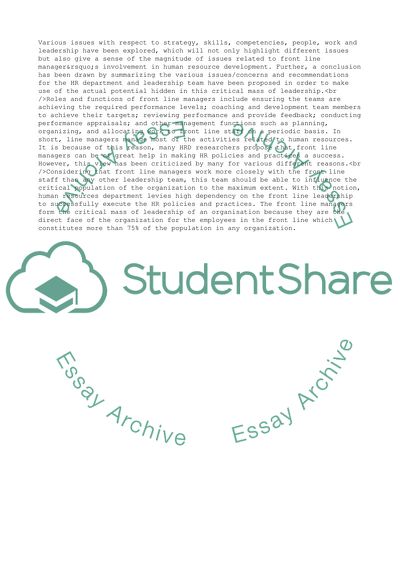Cite this document
(Role of Front Line Managers in the Success of HR Policies Essay - 1, n.d.)
Role of Front Line Managers in the Success of HR Policies Essay - 1. https://studentshare.org/management/1746764-managing-people
Role of Front Line Managers in the Success of HR Policies Essay - 1. https://studentshare.org/management/1746764-managing-people
(Role of Front Line Managers in the Success of HR Policies Essay - 1)
Role of Front Line Managers in the Success of HR Policies Essay - 1. https://studentshare.org/management/1746764-managing-people.
Role of Front Line Managers in the Success of HR Policies Essay - 1. https://studentshare.org/management/1746764-managing-people.
“Role of Front Line Managers in the Success of HR Policies Essay - 1”. https://studentshare.org/management/1746764-managing-people.


